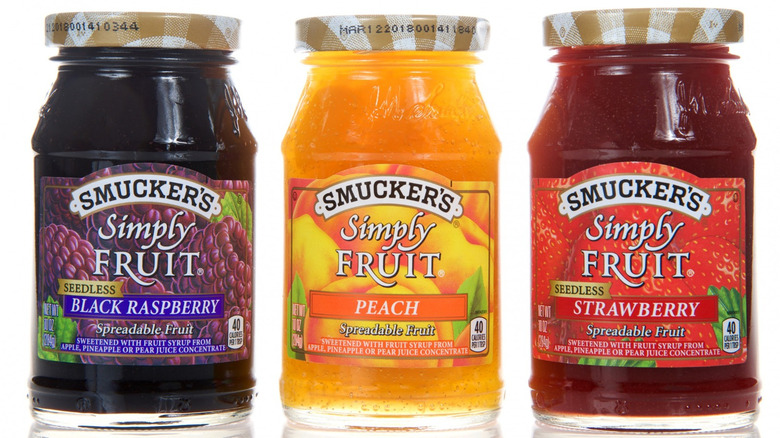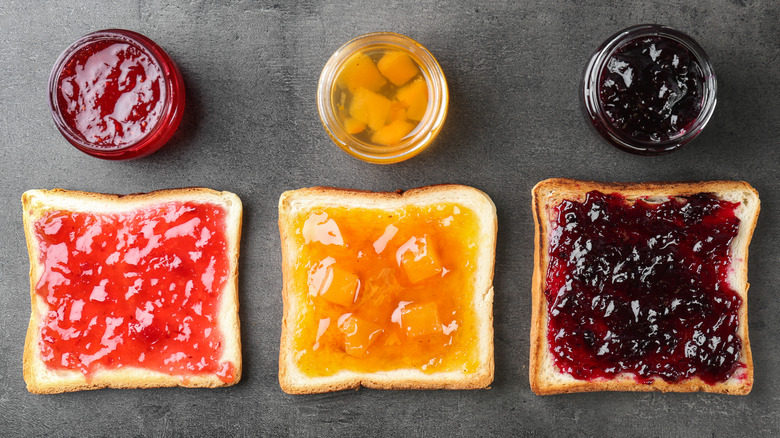Why Some Of Smucker's Spreads Can't Legally Be Called Jam
If you like peanut butter and jelly sandwiches for lunch, or enjoy a helping of jam on your morning toast, then you probably recognize the name Smucker's. The company, which was founded by Jerome Monroe Smucker in 1897, got its start selling apple butters, via The J.M. Smucker Company. From there, they went on to introduce a variety of sweet products, including ice cream toppings and fruit spreads, jams, and jellies, and in the years following World War II, they soon became one of the most recognizable jam brands in the country.
Smucker's has continued to innovate throughout the years, developing new products in response to consumers' changing tastes. In the 1970s, that meant focusing their efforts on lowering the sugar content of their products, as the nation faced a sugar shortage and consumers became increasingly more concerned about the amount of sugar in their food. So in 1978, Smucker's launched a new fruit spread that contained far less sugar than a typical jam, according to the Christian Science Monitor. However, because the sugar content was so low, the Food and Drug Administration determined the spreads did not meet the ingredient requirements for jam, and so banned the company from calling the item "jam."
Sugar is a preservative
According to The Guardian, jams typically contain about 60% sugar, but the reason for this isn't just for the flavor. Sugar acts as a natural preservative, preventing mold and microorganisms from growing and breeding inside the fruit. Without enough sugar, spreads might accidentally become home to potentially harmful microorganisms.
Additionally, just because a fruit spread might contain a little less added sugar, that doesn't necessarily make it healthier than other jellies or jams. Fruit naturally contains sugar, and even spreads labeled as "no-sugar added" might still be sweetened with fruit juice concentrates, which can increase their calorie count quite a bit. "Just because the sugar is not sucrose from the sugar bowl doesn't mean that it isn't sugar. Simple sugars from fruit and fruit juices are no different than sugar out of a bowl," Stanley Banach, a doctor and nutrition expert, explained to the Morning Call.
These days, Smucker's offers Simply Fruit spreads that have around 3 grams less sugar than their jellies and jams, and are sweetened with fruit syrup rather than high fructose corn syrup, per Smucker's. So if you are trying to watch your sugar intake, these fruit spreads might be a better alternative than traditional jelly. However, thanks to the natural sugar in fruits, even such spreads can increase the quantity of sugar in your diet quite a bit.

